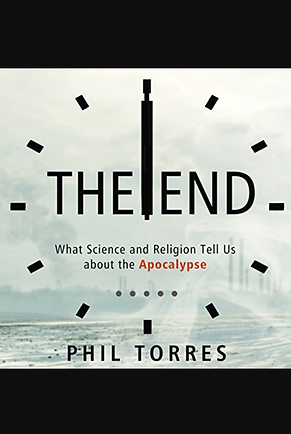Listen to an introduction to the new book here:
My previous book from 2016 is here:
Routledge Studies in the History of Science, Technology, and Medicine. July 14, 2023
A detailed summary of the entire book can be found on Substack here, or on YouTube here. Book errata will be catalogued here.
Our technology increasingly threatens the survival of civilization and perhaps all human life. It is becoming clear that we, now, have a responsibility unique in history: policy decisions made in the next decade or two will determine the fate of untold billions into the farthest future. Apocalyptic thinking has become relevant, even practical. Such thinking has ancient roots of more than historical interest, but exploring these roots is only the beginning for Torres. He goes on to uncover and analyze in novel ways remarkable developments in philosophy and science, new thinking that undermines everything preceding. We have hardly begun to grasp the meaning of this upheaval in how people perceive humanity’s future. Torres’s engagingly written book, admirably thorough, is a good start for facing our awesome responsibilities.
—Spencer Weart, former director of the Center for History of Physics of the American Institute of Physics and author of Nuclear Fear: A History of Images and The Discovery of Global Warming
* * *
What are our obligations toward future generations? How should we respond to the prospect of human extinction? In this fascinating book, Phil Torres surveys the diverse responses that have been offered to these fundamental questions. I highly recommend it!
—Lord Martin Rees, Astronomer Royal, former President of the Royal Society, and author of Our Final Hour and On the Future: Prospects for Humanity
* * *
[more soon]
Foreword by Dr. Russell Blackford. 2016.
In atheism, as in many religious traditions, the end of the world has a special significance. For us, the goal is to make sure it doesn't happen. Phil Torres' book is a great start. It's a provocative look at existential risks near and far, and is sure to get people thinking about these important questions.
— Sean Carroll, theoretical physicist at Caltech and author of The Particle at the End of the Universe
* * *
Phil Torres takes us on a fascinating journey through some rather alarming territory. His fear that the human race may soon be extinct is all too clearly justified—but so also is his message that we can do many things to minimize the danger.
— John Leslie, Fellow of the Royal Society of Canada, and author of The End of the World: The Science and Ethics of Human Extinction
* * *
I love this book. Torres is a rare communicator who handles big topics with extraordinary skill. In this stunning, scary, and fun book, he tackles nothing less than the end of us. From irrational religious claims about one apocalypse or another to sober, science-based possibilities of real doomsdays, Torres covers it all in grand style. This must-read book answers many questions while also spurring readers to think of new questions--exactly what a great book should do. Don't hesitate. Hurry and read The End before the clock strikes twelve!
— Guy P. Harrison, author of Good Thinking: What you need to know to be smarter, safer, wealthier, and wiser and 50 Simple Questions for Every Christian
* * *

